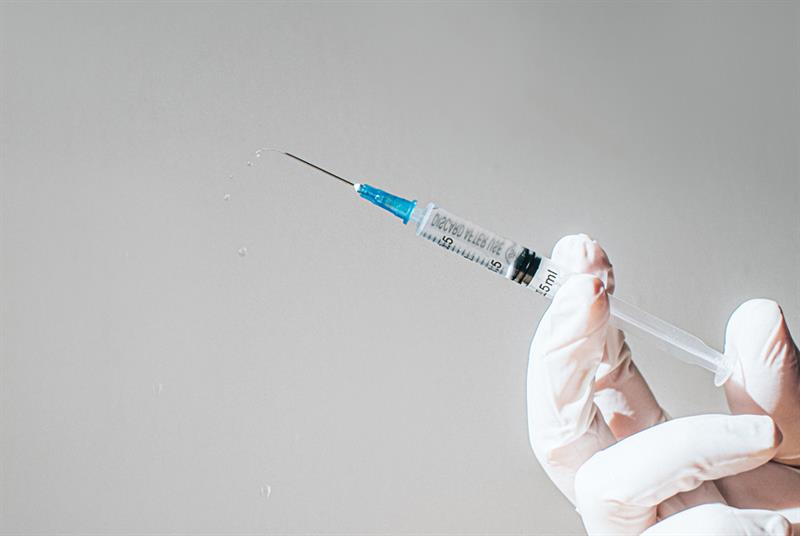Clinical Trials in Africa: Challenges and Opportunities

Christopher Burke
 Anxieties associated with COVID-19 vaccines in Africa are particularly high. However, perceptions that major pharmaceutical companies are out to exploit Africans to test drugs might not be informed by fact. According to a large, but not conclusive US Federal Government register on clinical trials around the world, only 3 percent of global trials are conducted in Africa. This is primarily attributed to lack of capacity, knowledge, infrastructure and access across the continent. Clinical trials are the foundation of modern medicine. They provide scientists with the opportunity to test the efficacy and safety of pharmaceutical products and medical therapies.
Anxieties associated with COVID-19 vaccines in Africa are particularly high. However, perceptions that major pharmaceutical companies are out to exploit Africans to test drugs might not be informed by fact. According to a large, but not conclusive US Federal Government register on clinical trials around the world, only 3 percent of global trials are conducted in Africa. This is primarily attributed to lack of capacity, knowledge, infrastructure and access across the continent. Clinical trials are the foundation of modern medicine. They provide scientists with the opportunity to test the efficacy and safety of pharmaceutical products and medical therapies.
The international clinical trials market is valued at over US$44 billion per year and expected to almost double to US$80 billion over the coming decade. Key drivers in this growth are the increased demands for new treatments and advances in technology. The suggestion early last year by two French doctors for COVID-19 vaccine trials to be implemented in Africa sparked fierce controversy, accusations of racism and supported widely held beliefs that people on this continent are frequently exploited as guinea pigs. In reality, the vast majority of clinical trials are hosted by countries in the West.
The U.S. National Library of Medicine (NLM) database on registered clinical trials around the world reports North America leading with 153,806 trials representing 42% of the world total. Europe had 29% and East Asia 17%. Africa has only 11,315 registered clinical trials in the same period. South Africa topps the fledgling clinical research sector on the continent with 2,480 registered trials closely followed by Egypt with 2,270. Next is Uganda with 595, Kenya 520, Tanzania 367, Tunisia 357, Malawi 257, Zambia 227 and Nigeria with 212 trials. Each of these countries today have small, but very robust medical research sectors.
Clinical trials of new pharmaceutical drugs and medical procedures are carried out in stages. The results of each stage are reviewed by ethics committees and relevant regulatory authorities before authorization to the next phase is provided. New treatments undergo extensive research in laboratories prior to testing on animals before testing on humans is permitted. Clinical testing on humans is divided into four phases. Phase I involves the evaluation of the drug to approved trials and identify interactions; Phase II determines the efficacy and optimum dosage; Phase III involves long term safety studies for registration, and Phase IV comprises of post-marketing surveillance following the market launch. Trials sometimes comprise hundreds of thousands of people involving thousands of data points for each respondent over several years and generate incredible quantities of data. Consistency and accuracy are critical.
The primary challenge to scaling up the implementation of clinical trials in Africa has been the decided lack of capacity to implement the programmes, manage data and ensure the integrity of the process and results. The scarcity of personnel with sufficient technical skills, the paucity of regulatory authorities and prevalence of corruption all present obstacles. Though costly, compliance with International Organization for Standardization (ISO) and other standards is increasingly necessary as regulations become more strictly enforced in many parts of the world. The regulatory authorities in East Africa function well. In fact, the capacity of regulatory authorities to interpret and apply standards and guidelines is present across most of Africa, but of course varies from country to country.
Among the more prominent scandals was Pfizer’s 1996 drug trial in Nigeria where shortcomings in management and oversight tragically resulted in the death of 11 children. Other participants suffered blindness, deafness and brain damage as a result of untreated meningitis. The company denied culpability, but settled out of court paying compensation to the families involved and sponsoring health projects in the region. Government attention to reinforcing appropriate policies and legislation accompanied with the strengthening of relevant regulatory authorities, ethics and other oversight committees will improve the safety and integrity of clinical trials and prove a sound economic investment.
Technological advances across the entire value chain, starting with research and development, have increased opportunities for the implementation of clinical trials across Africa. Cheaper, more accurate, durable and easier to use field testing equipment has facilitated access. These advances have been accompanied by developments in digital technologies to record and manage data and information in real time at every step of the process. Such features are used to further ensure the integrity and security of the data, and safety for the participants. Data points as simple as the precise location, time and date of where data is captured can be used to track vital information on the health of the participants and readily cross referenced against a range of administrative data to confirm authenticity. This data is invaluable to researchers, producers, regulatory authorities, ethics committees and consumers.
Clinical trials provide predominantly primary sector economies across Africa with an opportunity to engage in a lucrative tertiary sector export and earn foreign capital. Clinical trials also facilitate the establishment of pharmaceutical and medical health sectors of excellence. Many of the world’s leading research institutions including the London School of Hygiene and Tropical Medicine; the Pasteur Institute; and the University of California, San Francisco already have robust and productive partnerships with institutions across Africa grounded on clinical research initiatives. These programmes provide unparalleled opportunities for exchange, training and capacity building.
The gross imbalance in the current global distribution of clinical trials accompanied by improved capacity across Africa, increased competition in the industry globally and rising price imperatives will inevitably lead to more clinical trials on the continent. Unfounded fears concerning COVID-19 vaccinations and cynical references to biological experimentation must be put aside to allow for the health and safety of Africans and an objective understanding of the pharmaceutical industry. There is an urgent need to strengthen appropriate norms, legislation and procedures to harness opportunities associated with clinical trials, negate potential dangers, deepen engagement with the global economy and contribute to medical science.
Christopher Burke has been based in East Africa for over 20 years and is the Managing Director of WMC Africa, a communications and advisory agency in Uganda.

 Why we beg to differ with President Museveni on permanent terms pronouncement
Why we beg to differ with President Museveni on permanent terms pronouncement
 Uganda’s Aviation Infrastructure: Time for ambitious upgrades and structural reform
Uganda’s Aviation Infrastructure: Time for ambitious upgrades and structural reform
 Why and how economics must change
Why and how economics must change
 Illicit alcohol, the unbridled silent killer in Uganda
Illicit alcohol, the unbridled silent killer in Uganda
 Sobi’s gang is fragmenting, here is why that is bad for you
Sobi’s gang is fragmenting, here is why that is bad for you
 Africans must resist being bulldozed in energy transition timetable debate
Africans must resist being bulldozed in energy transition timetable debate
